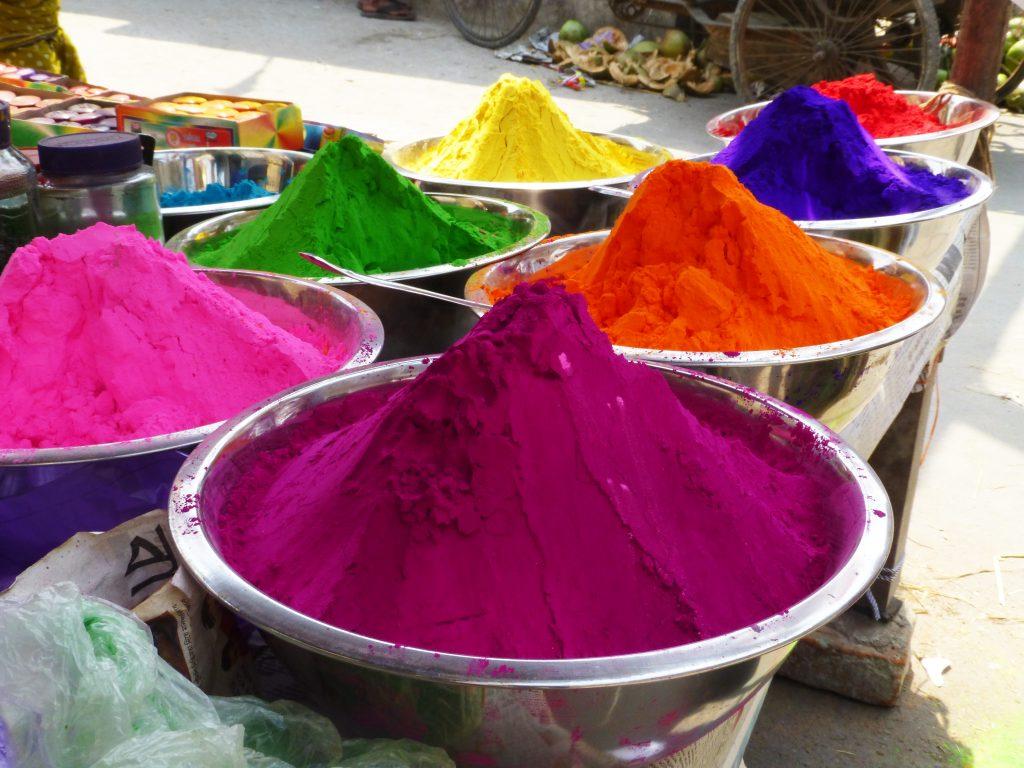Every year, the end of March signifies the arrival of spring and the end of winter with the vernal equinox, when the sun moves toward the upper hemisphere of the Earth. This important astronomical event is symbolized and celebrated as Holi, also known as the festival of colors. This festival, originally celebrated across the Indian subcontinent, is now widespread across the entire world. It lasts for a night and a day with a full moon after the vernal equinox and is traditionally split in three days. It is typically celebrated on the last full moon day of the Hindu lunisolar calendar.
The night of the full moon is known as Holika Dahan, when people gather together, light up a bonfire, and burn old unnecessary stuff to signify the destruction of grudges in the fire, to end one’s past errors, to end conflicts and to get rid of bad habits. According to the Hindu mythology, this burning fire marks the death of the evil Holika who tried to trick her nephew, Pralhad, into getting burned but was killed herself instead. The next morning, people smear each other with colors and drench one another with water. Water guns and water-filled balloons are also used to play with each other. This day is traditionally celebrated five days after the full moon in some parts of the Indian subcontinent; though, the festival is extended as a two-day national holiday in India and Nepal.
The second day is less commonly known as Dhulwad, originating from the word Dhuli in Sanskrit, meaning ashes. Days before the actual evening that the bonfire is lit, people start gathering wood, rags and other combustible material to burn in open places. On the top of the fire is an effigy to signify Holika tricking Pralhad into the fire. The fire is typically lit after sunset. The next morning is full of fun and merriment as children and young people, armed with dry colors and water balloons filled with colored water and other creative means, splash and drench their targets.
Traditionally, plant-derived organic colors or color-inducing herbs are used, such as turmeric and saffron. The colors used for this festival are gathered from boiling medicinal herbs in water and drying them. Shades of orange and red are obtained by using turmeric and mixing it with lime water, sandalwood, and dried hibiscus flowers. Green is obtained from Mhendi plants, the plants used for henna, while the juice of beetroot and pomegranate are used for purple pigment. People normally gather around in open areas like parks to smear colors, accompanied by songs and dance performances. Groups sing and dance, playing drums such as the Dholak, a two-headed hand-drum, among other instruments. After growing tired from all the running around and playing in the water, people clean up, wash, bathe and dress up in new clothes and have a solid lunch where Puran poli, a sweet flatbread, is eaten, a special delicacy made only on this day.
Puran poli is made by stuffing a sweet ball of gram pulses, a type of lentil, is mixed with jaggery, a sort of caramel made from cane sugar, in powder form to create a filling and then rolled into spheres. It is served with huge quantities of ghee. Other sweets are also devoured in the evening and people visit homes distributing them.
Holi is also a festival of forgiveness and new starts, which ritually aims to generate harmony and unity in the society. In recent times, a number of Holi-inspired social events have been created, particularly in the United States, often organized for the benefit of the common people. Michigan Tech’s Indian Student Association also organizes a Holi Night event, complete with a lavish dinner and dance and music performances by the students, every year to celebrate this popular festival on campus. This year, too, the ISA has organized Holi Night for April 14, with all its grandeur and a delicious menu for everyone at Tech. The dinner for this event is supposed to be held in the Memorial Union Building Commons. The tickets are available during the working hours of the week. The cost for ISA members is $8 and for non-ISA members the tickets cost $10 each. Hurry up and grab them fast, as there are only 150 tickets available! For more information on this and future events please email isacomm@mtu.edu or contact Aniket Samel at +1 (906) 275-9887.





